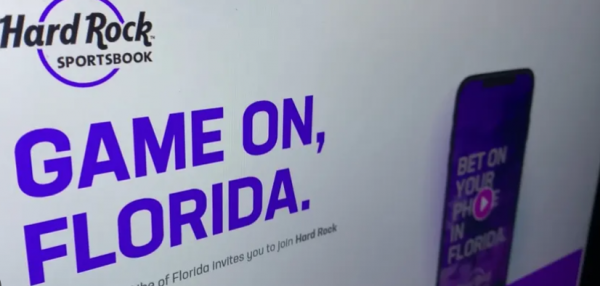Attorney Challenges Validity of Seminoles Sports Betting Tribal Compact With Florida in SCOTUS Filing
Gaming attorney Daniel Wallach has filed a brief with the US Supreme Court challenging the validity of the Seminole Tribe’s sports betting compact with Florida.
"I address a key question raised by Justice Kavanaugh: 'Does the compact 'authorize' the Tribe to conduct off-reservation gaming?'"
The filing comes as the Florida Gaming Control Commission has ordered Daily Fantasy Sports sites PrizePicks and Underdog Fantasy to operating in the state. Those companies were given a March 1 deadline to pull the plug. The Commission believes the DFS sites offer a product that closely resembles that of player propositions and parlays offered at sportsbooks like Hard Rock Bet.
Hard Rock Bet is the only sports betting company authorized to operate from the state of Florida. West Flagler is one of the parties challenging the compact. They operate Miami's Magic Casino but are prevented from offering sports wagering.
In West Flagler's application for stay of the D.C. Circuit’s mandate, Justice Kavanaugh wrote that “[i]f the compact authorized the Tribe to conduct off-reservation gaming operations, either directly or by deeming off-reservation gaming operations to somehow be on-reservation, then the compact would likely violate the Indian Gaming Regulatory Act, as the District Court explained.”
Here is what Wallach tweeted in regard to the brief filing:
"This is the crucial issue in the case, as the District Court held that the compact 'authorized' off-reservation and online sports betting (and therefore violated IGRA’s 'Indian lands' limitation), whereas the D.C. Circuit viewed the case differently, concluding that the compact simply 'discussed' off-reservation and online wagering in the context of an allocation of regulatory jurisdiction from the State to the Tribe and as “directly related” gaming activity.
"I decided to focus on this issue because it has been the subject of so much of my recent writing about the case and because, in my view, the issue had received only scant attention in the petition for writ of certiorari (maybe one page at most). So, this is the perfect issue for an amicus curiae brief in that it is not simply a 'me too' brief (as so many are), but, instead, homes in on an important issue that has largely been overlooked by the parties. In my view, this issue warrants a more detailed treatment in light of Justice Kavanaugh’s statement that if the compact 'authorized' off-reservation tribal gaming operations, then it would 'likely' violate IGRA.
"The 'authorization' issue highlighted by Justice Kavanaugh merits closer scrutiny at the certiorari stage, particularly in light of the D.C. Circuit’s hair-splitting conclusion that the compact 'discusses' online sports betting off tribal lands but does not 'authorize' it—even though the effect of the compact was to grant the Seminole Tribe the exclusive right to operate sports betting throughout Florida for 30 years.
"Through a careful examination of the compact’s plain language, its detailed legislative history, the relevant case law (including Murphy v. NCAA, which tips the scales heavily in West Flagler's favor by equating an "authorization" with "permission"), and the prior admissions of the Seminole Tribe, Governor DeSantis, the Florida Legislature, and the U.S. Department of the Interior, I conclude that the compact indisputably “authorized” off-reservation tribal gaming operations, including online sports betting, and therefore violates IGRA.
"As a remedy, I ask the Supreme Court to do something that it rarely does -- enter a summary disposition on the merits reversing the decision of the D.C. Circuit. Summary reversals are appropriate under Supreme Court Rule 16.1 when a lower court’s interpretation of a statute is 'both incorrect and inconsistent with clear instruction in the precedents of this Court.' Marmet Health Care Center, Inc. v. Brown, 565 U.S. 530, 532 (2012). I argue that the compact's authorization of off-reservation and online sports gambling is fundamentally at odds with IGRA’s plain language, the compact’s clear terms, and the Supreme Court's admonition in Michigan v. Bay Mills Indian Community that '[e]verything—literally everything—in IGRA affords tools . . . to regulate gaming on Indian lands, and nowhere else.'
"Alternatively, I ask the Court to grant certiorari and take up the case on is merits because the D.C. Circuit’s decision is in conflict with Bay Mills and at least four federal appeals court decisions declaring that IGRA has no application to off-reservation tribal gaming activities, and raises important questions of federal law that, unless resolved, are highly likely to recur in future cases.
Two future (and imminent) battlegrounds come to mind: (1) lawsuits in other jurisdictions challenging tribal-state internet gaming compacts that use the Florida blueprint in reliance on the D.C. Circuit's decision; and (2) lawsuits over the new Bureau of Indian Affairs rule that would allow states and tribes to compact for internet gaming.
"Indeed, numerous governmental entities (including the attorney generals of 20 states) and gaming industry stakeholders have submitted public comments in opposition to the now-published rule, arguing that it would exceed the BIA’s statutory authority by disregarding the requirement that gaming conducted under IGRA must occur on tribal lands. These objectors are the likely plaintiffs in any future federal court challenges under the Administrative Procedure Act, ensuring that the question of IGRA’s applicability to off-reservation tribal gaming persists beyond the current litigation. Therefore, I urged the Supreme Court to grant certiorari to address this critical federal question, given its high likelihood of recurrence in future cases."
- Gilbert Horowitz, Gambling911.com















